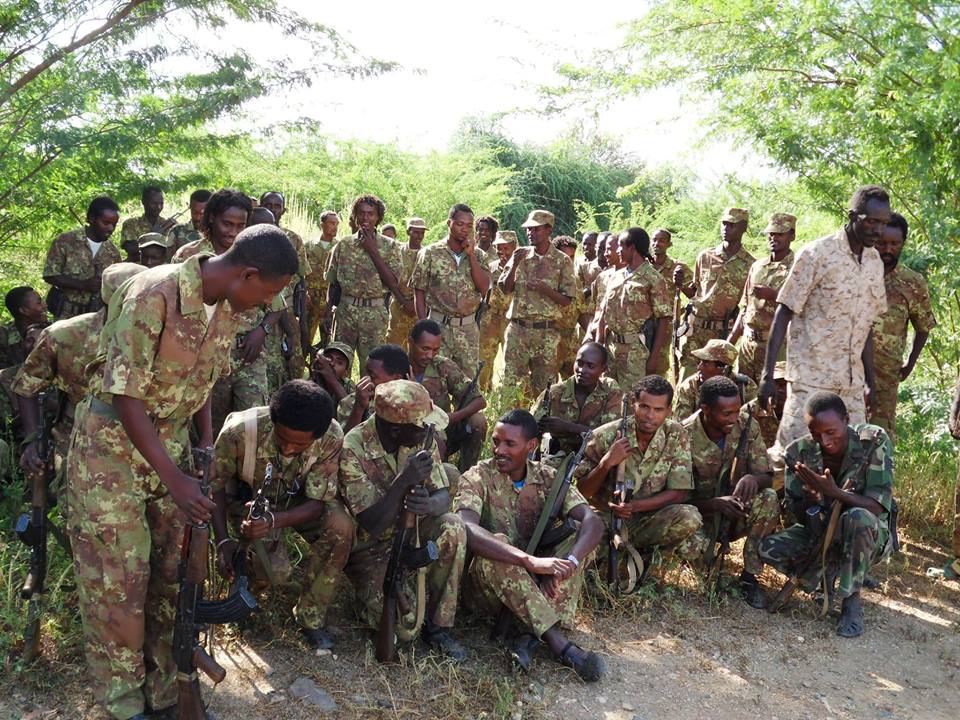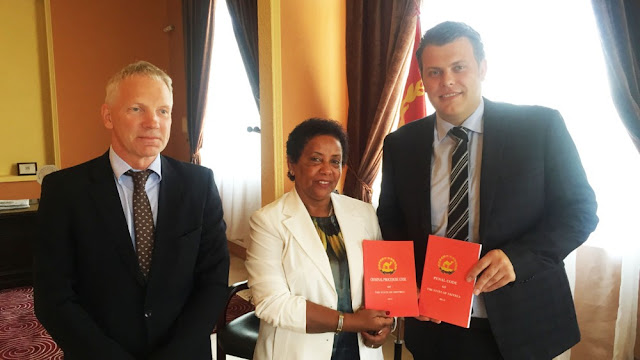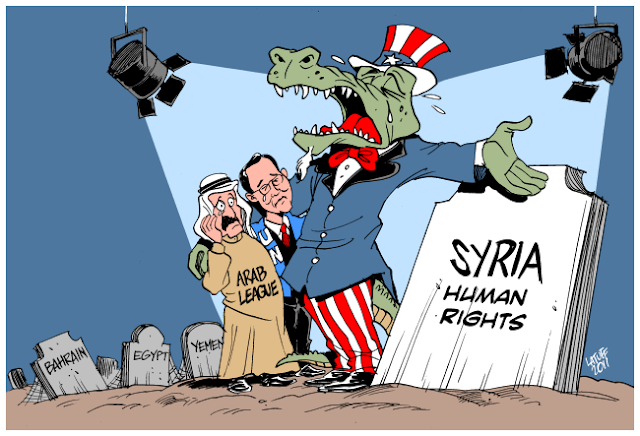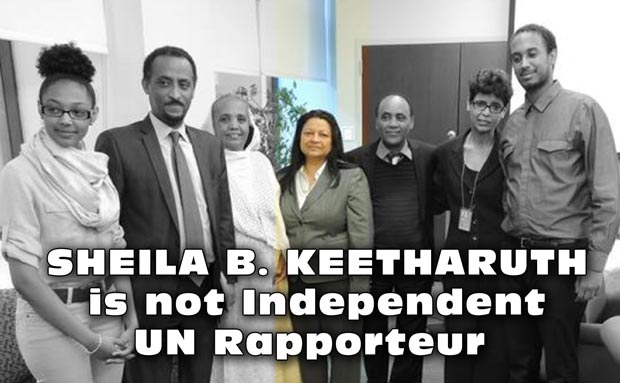With hundreds of billions of dollars in potash, gold, silver and other mineral resources ready for extraction, a growing educated population, and with a constitution on its way in the next few years, things are definitely looking up for Eritrea. Photo: Computer Science graduates from the Eritrean Institute of Technology in Mai Nefhi.The Eritrean Camel marches confidently ahead to the futureBy Tecle Abraham
The Eritrean people at home and in the Diaspora have celebrated their 24
th independence colourfully and with great patriotic zeal. It is common knowledge that Eritreans always celebrate in a unique fashion not to be seen anywhere else in Africa. But I believe this year`s celebration was far more colorful and exciting. Unlike in the previous celebrations, the atmosphere is filled with real hope and excitement about their future. I have intently watched all the videos across the country and elsewhere. The dancing, the poems, the speeches, entertainment and the active community participation were impressive and electrifying. The enthusiasm and the excitement was there for all to see. Every citizen now seems to realize that all the concerted effort to deny its hard won independence and sovereignty have been foiled and the future is bright, thanks to their collective resilience and steadfastness. The favourable domestic, regional and global situation underpin this excitement and hope for the future.
Eritrea has been subjected to crushing political, diplomatic, economic, and military pressures during the last decades. For a small country, just independent, with an economy devastated after 30 years of war, it would have been virtually impossible to do anything but to yield to the pressure and collapse. That was the actual expectation of those forces motivated to put these crushing pressures. And they were not at all at odds with the conventional wisdom. Africa is littered with such history of countries collapsing as a result of external or/and internal pressures. But, they were disappointed. Because, this is no ordinary country typical of the African continent or elsewhere. It is Eritrea, that was born in defiance of conventional wisdom, thanks to its unique values that outorganized and outbalanced all the odds thrown at it. That is where the mystery lies behind Eritrea`s successful frustration of all the destabilizing measures taken by hostile States using the forums of the UN and others.
Of course, the unwarranted hostility against Eritrea`s nationhood didn't start yesterday after independence. All started during those days of Cold war, when the US fixated with its geopolitical interest, maneuvered and succeeded in bringing Eritrea into the yoke of Ethiopian occupation in contempt of the UN charter and all decent standards of freedom and justice. We have to pay dearly to reverse this travesty of justice. All the rest is history. However, in this process of epic struggle to win back our rightful sovereignty, apart from believing in our cause, we have developed appropriate strategies and values that made up for our disadvantage as a small nation, with no allies to rely on. It is during the liberation struggle the Eritrean values to beat the odds of the moment are born and used as weapons of choice to resist the seemingly insurmountable challenges of the last decades. These values include dedication to our martyrs, unity, empowerment, creativity, resilience, patriotism and self reliance, love of truth and justice.
The national emblem, which is the camel, literally and figuratively represents the psyche of Eritrean`s in time of hardship. Like the Camel, we have developed the capacity to be extremely resilient to very difficult circumstances. That is how we put up with the unabated barrages of attacks against our nation. Like the camel we have to manage with the little we have. Even when the economic situation hurt so much, we reminded ourselves of the resilience of our tegadeliti to bring us independence. Thanks to the exemplary deeds of our liberation heroes and heroines, our psyche reminds us us, no worthful aim in life is achieved without resilience. Resilience is the key to success, when one has the right strategy to achieve its goal. When resilience is underpinned by patriotism, dedication, and unity of purpose, there is no earthly power to beat an organized and enlightened people, as Eritrean people is. And on top of that, we know there is no justice and truth in this world, neither from the UN nor from the AU, despite the disinformation and misinformation in the name of good sounding concepts.
Thanks to this commendable resilience and resistance, the domestic politico-economic situation are changing for the better and we have every reason to be proud of. Our fundamental weakness in the last decade, has been the lack of resources to export and earn foreign currency. Indeed, that was the major factor that made our economic situation far more worse than otherwise possible. As a fruit of resilience, that will be no longer the case. The mining industry is reaching to fruition and several of them are poised for production. During the 3rd quarter, Sunridge will start mining the Dubarwa section of the Asmara project. The Zara project will start generating revenues by early 2016. If the revenue generated by Bisha mining is any indication, up to one Billion USD would be available to propel the economic development in a significant way to uplift the economic situation of our people. That means, all problems related to energy, bread, etc as well as salaries of civil servants and our heroic armed forces will be addressed effectively. That is indeed a wonderful news. What is more, if we have achieved so much with few resources, for example the MDG, we will be able to more with additional resources previously unavailable. When a country is blessed with an incorruptible leadership, development is a certainty with increasing revenue. And then, the propaganda machine of the West and their cohorts will be no longer able to say, "Asmara under electricity rationing“ and hopefully will be able to understand the meaning of resilience in a country master of its own development agenda.
The political situation is also showing promising prospect of change. First of all, the long-stalled constitutional process is again underway. Without forgetting what a constitution guarantees and what not from the reality we experience everyday across the world, for us Eritreans it means a lot. Above all, it means returning to Normality, where rights and duties are pursued according to the law of the land. It is indisputable fact that the lack of the constitution would have contributed to mishandling or abuse of certain citizenry rights and obligations as well as unsatisfactory handling with mundane issues such as the distribution of Teisa. Another positive change is the
implementation of penal code, civil code as well others, replacing the provisional codes in effect since Independence. The most important change, however, is regarding the national service. Starting from the 28th national service recruits, the service will be limited to 18 months, exactly observing the limit set by the law governing national service. When seen in concert with the constitutional process, it means we are back to normality, which is expected to bring vitality to our citizens daily life repertoire. What is more, It will deny the western propagandists and sell outs the ammunition to defame Eritrea.
The improving domestic situation is also underpinned by favourable regional situation. Regionally, of course, our existential enemy is Woyane. This vicious strange regime has left no stone unturned to destroy Eritrea during the past two decades, thanks to the generous support and encouragement of the western empire. But, it seems it is heading to the very graveyard (Gudguad), it ditched for our nation. That is not surprising. Actually, it should be a miracle that it was able to rule Ethiopia for so long, considering the fact it represents only 5% of the total population, and it has failed to resolve all the problems existing during the previous regimes as well as new ones cropping up as a result of ist making. Now, it seems the factors responsible for its surprising long stay in power are fundamentally changing. To the dismay of Woyane, the Tigrai mass on whose behalf it claims to be in power have formed a formidable well desciplined, highly motivated army and with a progressive character reminiscent of the 1960`and 70`s to rectify the destructive policies of Woyane. And to this end, they are working in tandem with Arbegnoch-G7, which has large constituencies across ethnic divide. I have no doubt, these forces are capable of removing Woyane sooner than most people think, including think-tank entities such as International Crisis Group(ICG), which are utterly out of touch with the state of affairs in the horn of Africa.
Woyane of course, will do anything and everything to save his skin, but it can not avoid its downfalls. As a matter of fact, after its fake election of 2015, people have become quite receptive of the idea of its removal by military means. Therefore, the objective reality in Ethiopia is actually ripe for a change and the rebels have all the ingredients for a quick military victory. The significance of this prospect of change can not be underscored enough, given Woyanes destructive polices in the horn. Actually, it will be a game changer. Probably for the first time the Horn will have the chance to be peaceful and stable. In the absence of Woyane, the Ethiopian ethnic problem, the Ertro-Ethiopia, the Somali problem, as well as Sudanese problem will be amenable for amicable political resolution. One of the expressed aim of these progressive forces is the restoration of the relationship between Eritreans and Ethiopians, between Somalia and Ethiopia, badly damaged by Woyane. Regarding Eritreans and Ethiopians, we have learned our lesson that we benefit more by cooperating than contradicting each other. And finally, Eritrea will have a friendly neighbouring country that is no longer an eternal threat, enabling her to concentrate on development and prosperity of its people. That is why Eritrea stands shoulder to shoulder with all progressive and national forces of Ethiopia. Of course paying considerable sacrifice in the process, but strategically seen, it is worth it.
Of course, the repercussion of the removal of Woyane would upset the current geopolitics paradigm in the horn; in favour of Eritrea. Obviously, one expect the US to review its positions and options, when they loose their principal stooge in the area. And it is not improbable or farfetched to assume that the Americans would accept the reality and build mutually beneficial normal relationship with Eritrea. On the Eritrean side, the repeal of the sanctions imposed using the UN or unilaterally are important, assuming they remain in effect for long, which is the desire of the US. There is no certainty there. But, certainly the demise of Woyane will reverberate across the countries of the horn. The IGAD members that have been bidding the game of Woyane, including UN sanctions, will get their lesson and hopefully would regret their unwarranted hostility against Eritrea. The corrupt leader of Djibouti is already in tremor following the red carpet reception of President Isaias by the Saudis, who preferred to work with Eritrea rather than with Djibouti, a fellow member of the Arab league. Actually, Djibouti will be the worst loser economically and politically, when the Eritreans and Ethiopians mend their relationship. The leader of this country has actually behaved so much like a puppet, working hand in hand with Woyane, its political position in Djibouti will be severely undermined. And, he will be left with no other option except to make rapprochement with Eritrea.
In the Global sphere, the dynamics of the international relations are changing following the disaster of the unilateral US and NATO misdeeds in the Middle east and the world at large. Big powers such as Russia and China as well as India envisage a multi-polar rather a uni-polar world dominated by the US. These powers have no illusion of the danger oft he hegemonic desire of the US establishment. The Russians are feeling threatened by the advance of NATO right at their border and the Chinese over their claim to the South China sea. On the economic front as well initiatives are being taken that can fundamentally upset the US domination of the financial and credit institutions. We all know what the BRICS countries up to. They are building institutions parallel institutions to US dominated WB and the IMF. Moreover, within the US and western world societies, popular movement such as Occupy wall street, stop the war coalition, indignados, …etc are challenging the unjust and destructive policies of the so-called free world. Actually, the seeds of change are planted even in the US. It is encouraging to see a politician by the name Bernie Sanders standing for the US presidency on the platform of social justice, a development model the western protest groups are striving for. I don`t know if this politician can be the next president of the US. But if and when he does, this man will be atypical president, with policies good for the Americans and the world at large. One thing is sure, though, when Obama`s time is over next year, the anti-Eritrea woman Susan Rice will also be out. What this means to Eritrea in the light of changing dynamics of international relations is that Eritrea will be no longer standing alone and the the US will not find it easy to bash Eritrea as before using the UN forum.
In conclusion, thanks to our resilience and patriotism, our nation is moving ahead with great confidence and excitement for the future. With the increasing revenue from mining, the country will be able to meet the basic necessities of the society. And more importantly, it will be able to undertake large scale and significantly transforming developing projects in food production, fishery, tourism, with considerable growth opportunities. It will also be able increase the salaries of the civil servants and the defence forces that have made great sacrifice on our behalf. With the culmination of the constitution reviewing process, Eritrea will return to normality, where the rights and obligations of citizens will be governed according to the book. With the emerging favourable regional and global context, Eritrea will be able to concentrate on its overriding objective of advancing a just and prosperous society undistracted and with full vigour. Until that is reached, it goes without saying, we have to continue our resilience and patriotic duty as ever.































